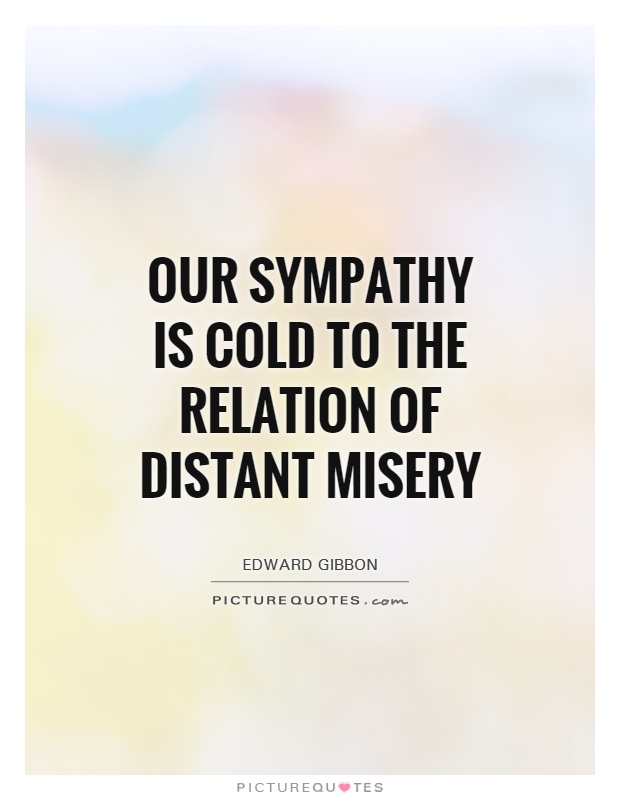Our sympathy is cold to the relation of distant misery

Our sympathy is cold to the relation of distant misery
Edward Gibbon, the renowned historian and author of "The History of the Decline and Fall of the Roman Empire," was a keen observer of human nature and society. In his writings, Gibbon often delved into the complexities of human emotions and behavior, including the concept of sympathy and its limitations. One of his famous quotes, "Our sympathy is cold to the relation of distant misery," reflects his understanding of how people tend to prioritize their emotions and actions based on proximity and familiarity.Gibbon's observation about the coldness of sympathy towards distant misery is a poignant reminder of the human tendency to prioritize the needs and suffering of those closest to us. It is easier for us to empathize with the struggles of our family, friends, and community members because we have a personal connection to them. We are more likely to feel their pain and take action to help alleviate their suffering because their well-being directly impacts our own.
On the other hand, when it comes to the suffering of people who are far removed from us geographically or culturally, our sympathy tends to be more detached and less immediate. We may feel a sense of sadness or concern when we hear about tragedies happening in distant lands, but our emotional response is often muted compared to when the same tragedy strikes closer to home. This phenomenon can be attributed to a variety of factors, including the limitations of human empathy, the overwhelming amount of information we are exposed to on a daily basis, and the natural tendency to prioritize our own well-being and that of our immediate circle.
Gibbon's insight into the coldness of sympathy towards distant misery serves as a reminder for us to be more mindful of our emotional responses and actions towards those who are suffering outside of our immediate sphere of influence. While it may be challenging to feel the same level of empathy for people we do not know personally, it is important to recognize the humanity and dignity of all individuals, regardless of their proximity to us. By cultivating a sense of compassion and solidarity towards those who are experiencing distant misery, we can work towards building a more empathetic and interconnected world.












 Friendship Quotes
Friendship Quotes Love Quotes
Love Quotes Life Quotes
Life Quotes Funny Quotes
Funny Quotes Motivational Quotes
Motivational Quotes Inspirational Quotes
Inspirational Quotes